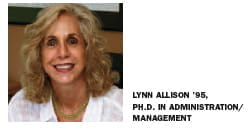How to get a small business loan in tough economic times.

Solidify Your Idea. You must be very clear in your own head about what the business will be and who you will serve. Whether you are expanding a current venture or starting a new one, you need to develop your idea fully in your mind before you put anything on paper. It is always helpful to talk to friends or other people in your life who have shown an interest in your idea. You need good sounding boards.
Identify Available Resources. There are plenty of free services for training and technical assistance to take you through the steps of opening and running your own business. Throughout the country, microlending programs have been created with the sole purpose of funding new business ventures, from Web site design firms to childcare and adult care services. Visit the Web sites for the Association for Enterprise Opportunity and the Small Business Administration. Funding through the SBA for small business loans is expected to increase—find local banks offering SBA loans. Talk to your banker about what you are planning. A smaller, local bank can be much more receptive than larger national banks when it comes to lending.
Develop a Business Plan. You don't need a professional plan that costs a few thousand dollars to write. I work with 12 different local banks, and from my experience, they would prefer a strong one-page summary that describes your background and your business. Develop a one-page breakdown of start-up costs, including rent and equipment needs. Present a snapshot of your expected costs and revenues over five years. You want to provide a quick summary that is easy to read.
Have a Credit Report in Hand. If your credit report has problems, you need to explain those problems and how you are resolving them. We all have situations in our lives that affect our finances. Be honest about your debts and how you intend to repay them. In Barbados, I had someone show up at my front gate with half a pig as repayment for a loan. As long as you are trying to repay your debt, banks may show some flexibility.
Persistence Pays. Make the case for your new business in every possible way. Demonstrate to a lender that you know the market for your business, service, or product and that you are building a customer base. Show your lenders any signed contracts or share testimonials from current or prospective clients. Be flexible and creative in promoting your business to prospective lenders. —Nancy Grund
Share ideas, network with peers, and stay up to date on the latest management topics at Think+Up.


